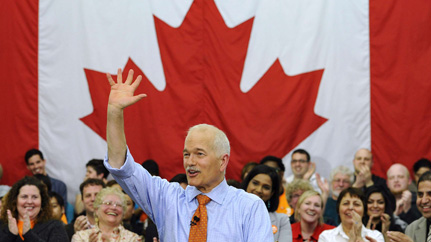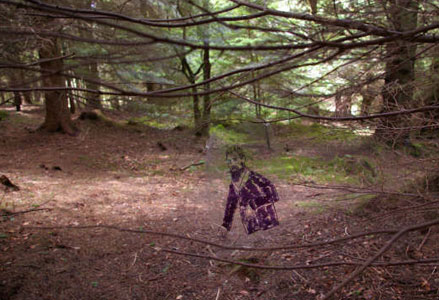
Jack Layton, leader of the Official Opposition, and leader of the New Democratic Party of Canada, has lost his battle with cancer.
It is hard to put into words how significant a loss this is for Canada. Whether you voted NDP or not, Layton was universally admired for his sheer determination and devotion to Canadian families, seniors, children — everyone who needed help. He genuinely believed we could lift each other up and create a fairer society.
It has been a toxic year tainted by the disgusting spectacle of British politicians rushing to distance themselves from the corrupt media empire they had helped to create; revolutions in Egypt and elsewhere that provided hope which was quickly extinguished once it was clear youth, women, and moderate voices would have nothing to do with the new order; America brought to the economic brink by petty partisan bickering and a rabid right wing; London burning ostensibly over a police shooting but looters gone wild leaving a bitter taste; and a recent Dutch election that saw the rise of Geert Wilders’ far right PVV party go from 9 seats to 24. I have not even touched the economic roller coaster and the repulsive charade of bank bailouts followed by enormous-bonuses-as-usual on Wall Street.
Amid all this toxicity, negativity, and despair, Jack Layton had this to say from his deathbed:
“… consider that we can be a better, fairer, more equal country by working together. Don’t let them tell you it can’t be done.
My friends, love is better than anger. Hope is better than fear. Optimism is better than despair. So let us be loving, hopeful and optimistic. And we’ll change the world.”
Don’t let them tell you it can’t be done.
Don’t let them tell you it can’t be done.
Amid the shameful circus of global politics, Jack Layton was a rare genuine spirit, the epitome of public service, and someone so straightforward and real.
I am completely broken up over the loss of one of the good ones, in the face of all this bad. I am going to repeat Jack’s words many times to myself, and resolve to reprioritise and set an example afresh, to keep my head up in this dark hour. My condolences to Olivia Chow and Jack’s children, I cannot imagine the immensity of their loss.
Rest in peace, Jack.
